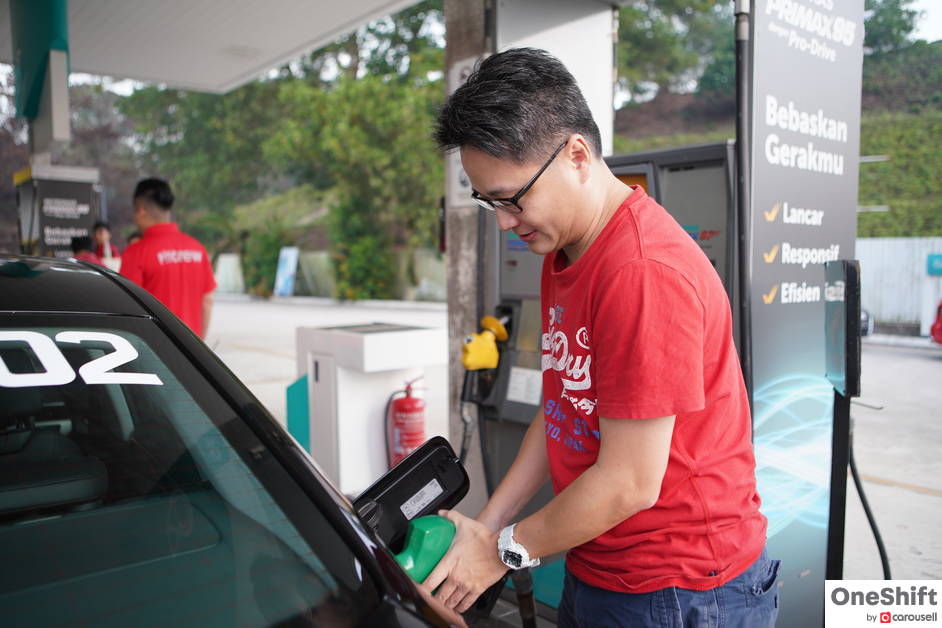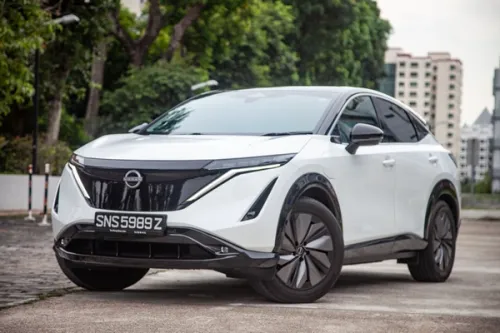Fuel Myths Debunked!
For one of the most commonly used and traded commodities on the planet, misconceptions about fossil fuels are surprisingly rife. The internet is awash with pseudo-science, or flat-out mistruths on the logic behind combustion, and altering the fuel quality can affect mileage and performance.

For one of the most commonly used and traded commodities on the planet, misconceptions about fossil fuels are surprisingly rife. The internet is awash with pseudo-science, or flat-out mistruths on the logic behind combustion, and altering the fuel quality can affect mileage and performance.
Unless you’ve been living under a rock since the dawn of the internet, we’re sure you’d have heard of at least one of them. If you’d like to forgo using these volatile compounds as your preferred method of propulsion altogether, considering taking a look at the EVs we have on offer on the Autos section of the Carousell app. For those with petrol coursing down your veins, we hope this piece helps bust some common fuel myths!

We've all heard this one. The belief is that there's more energy content in a higher octane fuel, and thus your engine is able to produce more power as a result. However, the truth is that most bread-and-butter cars will run just fine on 92 or 95, with no appreciable power difference with a higher octane rating.
In actuality, octane rating is not a metric for the concentration of energy, but one of fuel stability. The higher the rating, the more resistant the fuel is to combustion under extreme pressures. Likewise, the converse is true. As most of our dailies will never have engines that operate at such load, fuel stability is a non-issue.
If you’re driving an economy COE car, sure, this statement does hold true. However, this mindset can cause serious damage to more performance oriented vehicles in the long run. Performance cars rely on higher compression engines to generate more power. For optimal engine health and reliability, the fuels have to be ignited under pressures greater than what the lesser fuels can tolerate.
A secondary function of petrol in a performance-oriented car is for cylinder cooling. At the pressures and temperatures found in the combustion chamber of a high output motor, inferior fuels will combust prematurely, causing knock that, if sustained, may cause irreversible damage to the engine.
As with most myths, the principles are sound. Sediments in your fuel will settle to the bottom of your tank, and running it on close-to-empty potentially means exposing these particles to the rest of your fuel system.
So logically, if you consistently run your tank low, your fuel pump will be constantly feeding tainted petrol into your engine, that can cause failures. However, that isn't true - and for 2 reasons. Firstly, fuel is always drawn from the bottom of the tank anyways, regardless of fuel level, so if sediment was to be drawn through, it would have done so even with a full tank. Secondly, all cars will have a fuel filter to catch any undesirable particles long before they can be sprayed into your cylinders to cause any serious damage.
In Formula One, fuel is measured not in litres, but in kilograms. This may sound like the F1 boffins being pedantic about something seemingly minor, though there’s a good reason why kilograms is the preferred unit of measurement, especially since even small variances can lead to unfair advantages to a specific team.
It is true that when ambient temperature and pressure falls, volatile substances can benefit from an increase in density. This means that the typical litre to kilogram ratio of 1:1 can be skewed, meaning that additional density can mean you actually get more petrol.
However, in the real world, fuels are stored in underground, fire-resistant chambers. They are protected against significant temperature and pressure changes, so the difference in actual volume between a late night fill-up and one done in the middle of the day, is a whopping 1%, a figure that you can better make up for with a more gentle right foot!

Altering your driving style and pairing that with a decent petrol credit card can be your best insurance against exorbitant fill ups. Other things that you can do, include using the recommended grade of petrol for your vehicle (avoid overpaying for premium fuel when your car doesn’t need it), and perhaps even shedding any unnecessary weight from your vehicle.
If your owner’s manual suggests you use premium fuel, chance are that they’ve recommended so for good reason. You can get away with lower grade fuels once in a while, but prolonged usage can be bad for your motor. Luckily, if it’s a used car you’re after, headaches like excessively worn motors can be avoided if you shop from reputable dealer on the Carousell App! With thousands of listings already live, and with new ones added everyday, there’s bound to be something for everyone, regardless of need, use-case or budget!
Credits: Jek Ray Low

- Convenient and Hassle-Free
- Consumer Protection
Transparent Process
With No Obligation


Get the Best Price for your used car
from 500+ dealers in 24 hours








